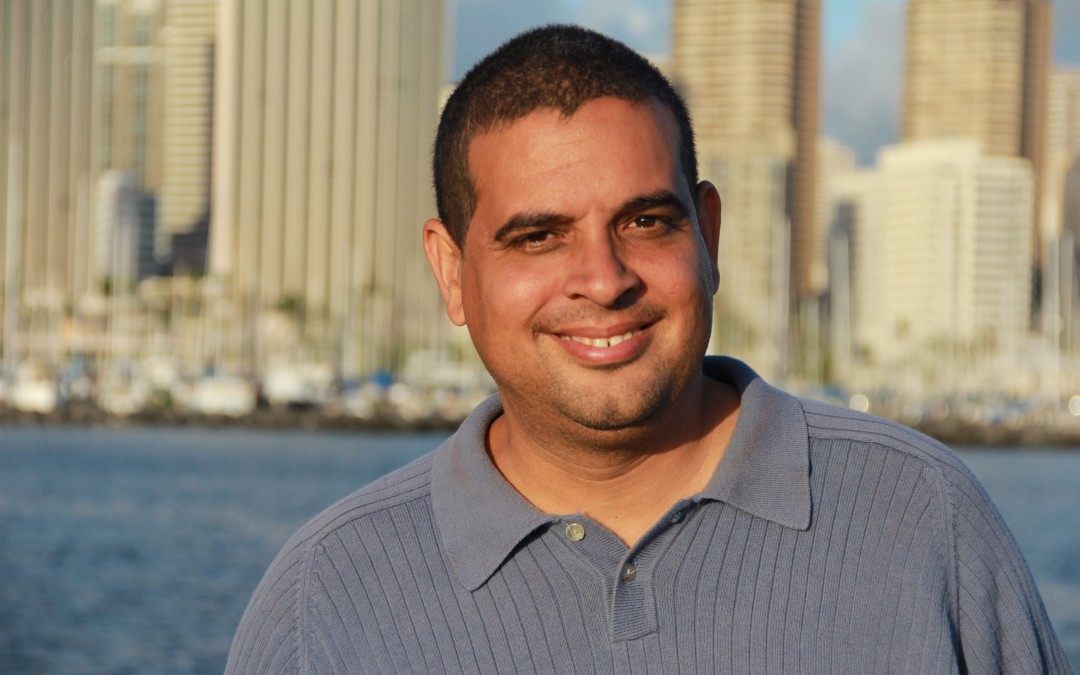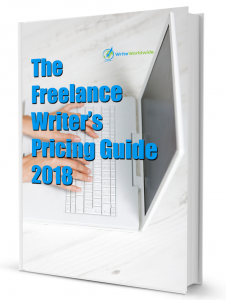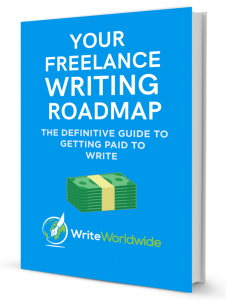Today we’re bringing you a dose of inspiration to start the week – a detailed interview with successful writer and journalist Albert Lanier.
It pays to learn from the pros, and Albert has a wealth of advice gleaned from 22 years in the business.
Read on for his insights into building your writing career…
1) Hi Albert, please tell us a little about yourself and your career as a writer.
I began writing in 1994. I was 24 at the time.
This was a year or more after I graduated from a liberal arts college in the University of Hawaii-West Oahu.
After I got my BA degree, I was working in another industry for a short time and then a couple of months later decided to take a chance on freelance writing and journalism.
My career as a freelance writer lasted 22 years in total. I retired from freelancing earlier this year.
As a result, I’ve been able to spend my time with my other interests and hobbies – for example, I’m a science fiction literature and Sci-Fi film and TV fan.
I am still a writer though, and if offered the occasional writing gig for the right price, I will gladly accept.
2) Did you grow up wanting to be a writer? And how did you break into the industry?
I got started in 1994 and quite honestly, I knew nothing about freelance journalism or freelance writing.
As a teenager, I got a grounding in print journalism by writing for my high school newspaper which was one of the very few daily high school newspapers in the country at the time.
Prior to high school, I spent a year writing for my junior high newspaper which was about 13 issues or so in a school year. The foundations to both journalism and writing for publications come from my teenage years, since I didn’t study journalism as a formal major in college.
At my high school, we got journalists from both print and broadcast who came to our newspaper class at times to tell us about the profession and they never mentioned freelancing.
So, as a result, I was never really prepared to become a freelancer.
I had worked as a board operator for a commercial radio station – meaning I ran the production board and played music – for an oldies rock station. So, my first job out of college was playing Beatles, Rolling Stones and Doors tunes amongst others.
After a couple of months, I got frustrated and – for some unknown reason – decided to take the cold-calling I had done to radio stations looking for work and apply it to newspapers and magazines.
One small newspaper hired me initially to do film reviews at an absurdly low rate but that didn’t pan out ultimately.
By that time though, I had sold an idea about kids and family films to a family publication and then an article about interviews with Governor and Lt. Governor candidates for office in that year’s location to a senior citizen publication and my freelance writing career began and just kept going from then on.
3) What advice do you have for beginner freelance writers?
The same initial advice that I give any kind of writer in any writing profession: First, do your research.
I have a series of 3 seminars that I can give to groups and organizations called the Basics series.
In all of those talks, I note my first and inviolate piece of advice: Take 3-6 months to do research into the form of writing you want to do. This includes reading books and magazine articles, watching YouTube, even chatting with experts if you can speak to them.
Keep this in mind – being a writer of any sort is a profession. All professions requires some form of direct training outside of getting one’s education.
Freelance writers should have a body of knowledge about the industry and profession BEFORE you cold-call, pitch or even write. Don’t, ever, ever write for free until you have established a revenue stream and sufficient business/personal income.
You should never start out writing for free – always write for a fee, even if it is low to begin with.
At least if you are making a few bucks, you are making money. You must understand from the beginning and never forget that you are in a business and all businesses must make money.
Don’t write for free until you have written enough paid content and pieces to establish a steady income – only write for free with an eye toward marketing yourself as a writer.
4) Do you have any advice for writers juggling freelance writing with a full-time job?
This may seem odd to some writers and many freelancers who read this interview but I never wanted to be a full-time freelancer.
I wanted a part-time job to offset my income. I was financially forced to write full-time which I wish hadn’t been the case. It’s very tough to be a full-time writer of any sort.
The best advice I can give those with full-time jobs is make sure you take it slow from the beginning.
Don’t commit yourself to a slew of magazine pieces or online content. Maybe do one or two at a time. Gauge how your work is shaping up publishing/posting wise and then financially and then work to bring in more business.
5) What’s your opinion on the subject of choosing a writing niche?
It’s rational advice and plain common working writer sense to pick a certain niche if you know about it – or want to learn about and work towards it.
If you are a freelancer, it’s more writing about what you are aware of as opposed to what you know.
Freelancers often end up writing articles about subjects they knew nothing about previously. That’s happened to me more times than I can count.
However, basic logic would indicate that if you have a body of knowledge about cars and vehicles of all sorts that automotive magazines are your best initial bet.
Put your interests and your information to work for you as a freelancer.
6) Winning new clients is always a hot topic on the WriteWorldwide blog. What’s the most effective prospecting method you’ve used to find new work?
I have cold-called publications all my career. I never stopped. Every year, no matter what city I lived in – Seattle, LA, Honolulu – I would get a phone book out or compile a list of publications and numbers, call the editors and ask briefly whether they used freelancers or not and if so, send my CV and 3-resume and 3 samples to them via email.
E-mail – when I started working with it in the late 90’s – became an easier method of contacting editors and publishing. Far better than snail mailing my samples to them.
7) What do you wish you’d known at the start of your freelance writing career?
How long it was going to be. I never thought I would do this for 20 plus years. Never could have predicted that.
8) Name one book, one tool, and one article that have helped you in your writing career.
The tool is easy: the world wide web and internet. Both those changed the way I did business and the trajectory of my career. I was able to get more work and work efficiently and effectively because of the internet.
The Book? Maybe On Writing by George V Higgins. I haven’t read it in years but it was the most memorable book on writing and being a writer that I recall reading in my younger years.
My own piece for Asianweek – a now defunct San Francisco based publication – covering Obama beating Clinton during the Hawaii Democratic Caucus in 2008, became a sample send-out for me. I probably got a good deal of work and money from that one article alone.
9) Who are your biggest influences and people you admire in the freelance writing industry?
Hunter S Thompson stands out because he was the rare freelance writer who became a journalistic star. He is certainly one of my influences as a journalist and writer.
His brutal, take-no-prisoners prose is so jarring even in this rather jaded, cynical, seen-it-all age.
The other gigantic influential freelancers and writers were Tom Wolfe and Gay Talese.
Wolfe is one of the most distinctive and original freelancers I have ever read, his style is so much different from the rote journalism of the period he was writing magazines and newspaper pieces in.
Talese is simply one of the most talented stringers and reporters I have ever read. His work is simply outstanding. Right now, I respect the work of Glenn Greenwald at The Intercept. Greg Palast is another journalist I like.
10) What does the future hold for you – are you involved in any new projects related to writing?
In terms of writing, the future is offer only at this point. That means I don’t seek work out – it has to come to me. I just retired this year from my freelancing career.
However, I am open to the odd paid magazine assignment or newspaper article. If the price is right, I will write.
I just wrote an op-ed piece for a local news site called Civil Beat here in Hawaii. I have done a few op-ed pieces – most before I retired. I’m still a professional writer, just not a freelancer at this point. I was also a ghostwriter during my career as a freelancer and I can still ghost pieces and possibly books for clients today.
I wouldn’t mind writing a book about freelancing at this point but only if a potential book publisher is interested.
To reach me directly, send e-mails to hd9000@msn.com. I can also be found on Twitter (@Criticinc) and Facebook as well as Linkedin and Google Plus. When contacting me please mention the Write Worldwide blog interview so I know where you got the info.
Albert Lanier was a freelance journalist for 22 years and wrote for a variety of publications in Hawaii, Seattle, Los Angeles and San Francisco including Pacific Business News, Honolulu Weekly, Edible Hawaiian Islands, Hawaii Magazine, Asianweek, Puget Sound Business Journal and online for Modern Luxury Hawaii.
To find out more about Albert, check out his video Confessions of a Freelance Writer on YouTube.
Did you enjoy today’s interview? Let us know your top take-aways in the comments!




Fantastic interview. What a great story and a terrific resource. Thank you for branching out and speaking with Albert. I will be checking out some of the writers he admires and has learned from.
Thanks Kate. Yes, Albert gave some really great answers. There are pearls of wisdom for just about any freelance writer. Glad you enjoyed!